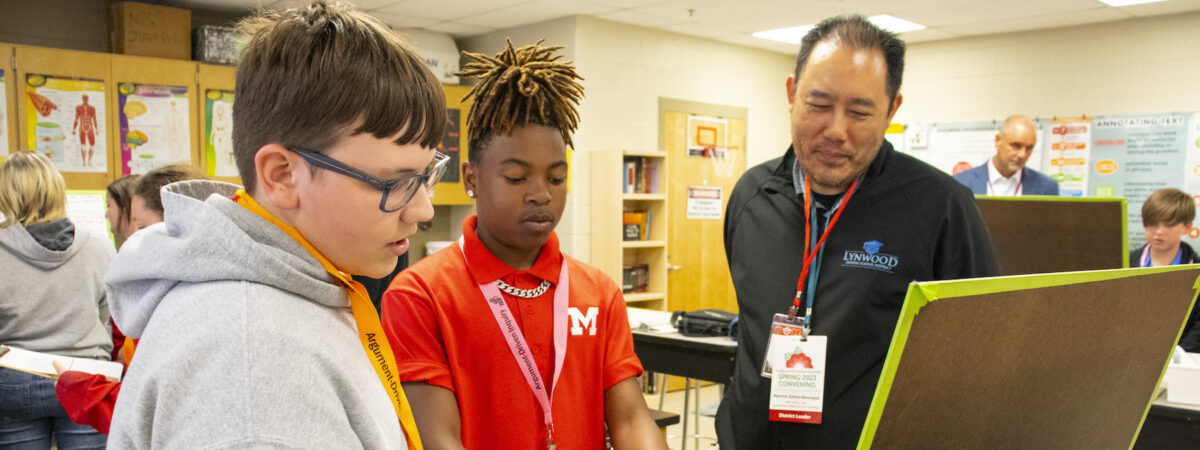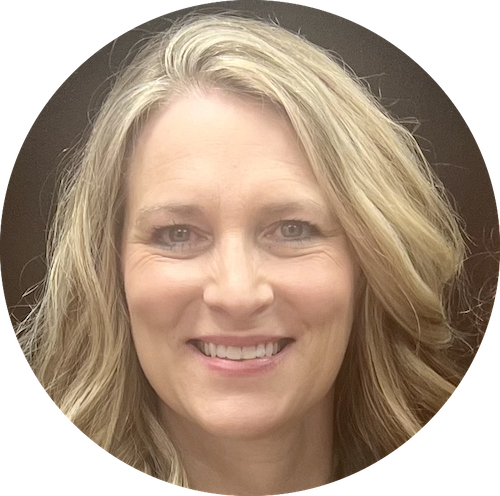
Faced with these challenges, leaders must think innovatively about how to update time-consuming, opaque processes. Across the country, forward-thinking district leaders are answering this call by reimagining edtech procurement decisions to make processes easier, safer, and more effective for everyone in their learning communities.
Read on to learn how three visionary Digital Promise League of Innovative Schools districts—Lynwood Unified (California), Talladega County Schools (Alabama), and Fullerton School District (California)—are addressing challenges around budgets, time, and emerging technologies to make effective edtech procurement decisions.
As state and local budgets tighten across the country and federal pandemic stimulus funding runs out later this year, district leaders are making hard choices about which edtech contracts to keep and which to cut. The decision ultimately boils down to safety, price, and efficacy: Is it safe to use, how much does it cost, and how do I know it works for my students and teachers?

Patrick Gittisriboongul, Assistant Superintendent for Technology and Innovation, Lynwood Unified School District (California)
Having a nationally recognized, trusted third party like Digital Promise help set edtech procurement standards is critical, said Patrick Gittisriboongul, assistant superintendent for technology and innovation at Lynwood Unified School District in Southern California. “It’s a real game changer for us as a district. We are already looking to cut a lot of our programs and platforms because many aren’t being utilized to their fullest extent,” he explained. If only a third or less of students are using certain platforms for which the district is paying full access, “that’s not being prudent with your public dollars,” he added.
Having evidence-based product certifications that are aligned with federal standards for evaluating the effectiveness of educational interventions is key. “It’s going to help us weed out products and really allow our district and edtech vendors to have more thoughtful, meaningful, productive conversations around not just how much a product costs, but the type of outcomes that we’re trying to accomplish with the tool,” he said.
Finding quick, reliable information about whether a product works is also a challenge with an oversaturated marketplace. With limited time and resources and so much at stake, most district leaders and edtech procurement officers rely on word-of-mouth recommendations from trusted peers, but product certifications can standardize and help alleviate this evaluative burden.

Dr. Brooke Morgan, Coordinator of Innovative Learning, Talladega County Schools (Alabama)
“Anytime I want to purchase a program that I don’t know a lot about, I always ask the companies, ‘Who in our state is using this?’ I want to get a firsthand account of another district using the program, and whether or not they think it’s beneficial,” explained Dr. Brooke Morgan, coordinator of innovative learning at Talladega County Schools in Alabama. “With product certifications, that could save me a lot of time. There are so many products out there that it’s truly impossible to research them all.”
With district leaders having to assess the efficacy of dozens, if not hundreds of edtech programs and platforms each year, the burden of time and energy is significant, and most districts are not staffed to do so. By leveraging product certifications that are developed with education leaders across the League of Innovative Schools and aligned with national ESSA Tiers of Evidence guidelines, districts can offload a significant portion of the heavy lifting of this evaluation work and gain access to reliable information about product quality much faster.
“If I know Digital Promise has put them through the research wringer and that the research has been backed by a third party, it is a much faster way to assess the quality of the edtech product and whether it is impacting student learning outcomes,” said Jeremy Davis, assistant superintendent for innovation and instructional support for Fullerton School District in California.
Davis recommends building product certification requirements into your RFP process, as a must-have or a nice-to-have, depending on what you are trying to accomplish. He sees this process as benefiting both product vendors and districts, because it saves everyone time. It’s the difference between vendors negotiating data privacy agreements with one representative entity one time versus negotiating with 1,000 school districts individually, for example.

Jeremy Davis, Assistant Superintendent for Innovation and Instructional Support, Fullerton School District (California)
Davis speaks from experience from his district leadership role, but also as co-founder of Education Technology Joint Powers Authority (EdTech JPA). These types of cooperative purchasing groups aim to streamline procurement for digital products and services by providing educational agencies with the opportunity to leverage consortium contracts to save time and resources, while ensuring data privacy and public procurement laws are followed. Rather than each school district, county office of education, and vendor separately negotiating contract terms, pricing, and data privacy agreements for their digital education products and services, these cooperative purchasing groups centralize the technology procurement process, including the preparation of RFPs, vendor selection processes, and contract negotiation. “The point is to make procurement easier, faster, and safer for everybody,” Davis explained.
Across the country, League districts are using strategies and resources like product certifications and cooperative purchasing groups, such as the Education Technology Joint Powers Authority, to center student achievement and product efficacy when making decisions about which products they will use in their learning communities. And they are learning from each other.
For example, Gittisriboongul is part of a group of diverse League innovators working with Digital Promise to co-design a product certification on ethically designed AI. With the rapid advancement of AI being integrated into edtech products, district leaders are grappling with how these and other emerging technologies will impact students and teachers. Such certifications would ultimately force vendors to consider and disclose how they are systematically addressing shared concerns and cross-cutting implications for using AI in classrooms, and districts would be able to entrust students’ and teachers’ safety and learning to products who take it just as seriously as they do.
“Being in the League has really provided us with a ton of resources that we’ve been able to gain and develop. It’s allowing us to innovate and really push other organizations to follow along, whether it’s in our community schools initiative, our AI task force that we’ve developed this last year, outcomes-based contracting, or ethically designed AI product certification. We’re really being partners, and being a part of the League helps us be more inclusive because we’re allowed to see what’s happening with other districts nationwide, as opposed to just staying within our closed ecosystem,” Gittisriboongul reflected. “It’s making us a lot more sophisticated, and a lot more innovative in terms of how we’re thinking about education.”
Want to learn more about innovative approaches to edtech procurement for your district?